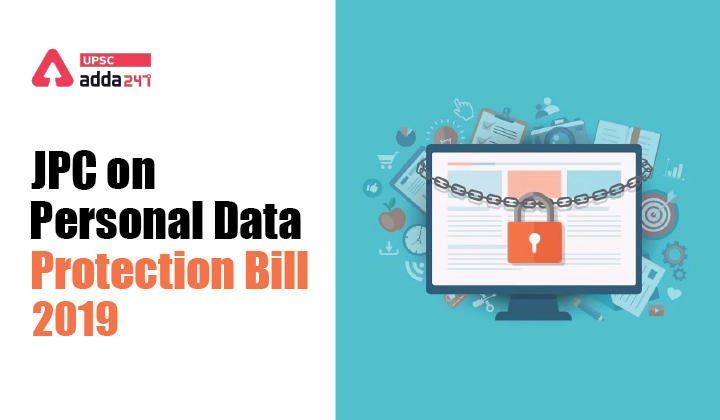Table of Contents
JPC on Data Protection Bill: Relevance
- GS 3: Basics of cyber security
JPC on Data Protection Bill: Context
- Recently, the Joint Parliamentary Committee (JPC) adopted the draft report on the Personal Data Protection Bill 2019, after almost two years of deliberations.
JPC on Data Protection Bill: Key points
- JPC has retained the controversial exemption clause that allows the Government to keep any of its agencies outside the purview of the law with minor changes.
- The Bill was drafted after the Justice K.S. Puttaswamy vs Union of India case on privacy where Supreme Court ruled that ‘Right to Privacy’ is a fundamental right.
JPC on Data Protection Bill: Key recommendations
- JPC recommends to treat all social media platforms as publishers and they should be held accountable for the content they host.
- The Personal Data Protection Bill committee also recommended that no social media platforms should be allowed to operate in India unless the parent company sets up an office in India.
- Data Localisation: JPC also advocated for developing an alternate indigenous financial system, on the lines of Ripple (U.S.) and INSTEX (E.U.), for cross-border payments.
- JPC was of the opinion that a dedicated lab for certification of all digital devices should be setup in India.
- In case of cross-border transfer of data, a mirror copy of sensitive and critical personal data be mandatorily brought to India.
JPC on Data Protection Bill: Criticism of the dissenters
- Creates two parallel universes: The Bill has been criticised for developing two sets of rules—one for the private sector where the provisions would apply with full rigour, and other for the government entities with too much exemptions and escape clauses.
- The Bill also does not provide adequate safeguards to protect the right to privacy.
- The draft Bill falls short of the standards set by the Justice Srikrishna Committee to build a legal framework based on the landmark judgment.
- The key divergences from the Justice Srikrishna Committee’s draft Bill are in the selection of the chairperson and members of the Data Protection Authority (DPA) which shall protect the interests of data principals and the leeway provided to the Union government to exempt its agencies from the application of the Act.
- While the 2018 draft Bill allowed for judicial oversight, the 2019 Bill relies entirely on members of the executive government in the selection process for the DPA.
- The 2019 Bill adds “public order” as a reason to exempt an agency of the Government from the Act, besides only providing for those reasons to be recorded in writing.
- The 2018 Bill that allowed for exemptions to be granted to state institutions from acquiring informed consent from data principals or to process data in the case of matters relating only to the “security of the state” and also called for a law to provide for “parliamentary oversight and judicial approval of non-consensual access to personal data”.
JPC on Data Protection Bill: Way forward
- The Bill should include those exemptions granted in writing should at least be tabled in both Houses of Parliament.
- The ground “public order” should be removed as it provides too much scope of missuse.
- It is now the task of Parliament to tighten the provisions further and bring them in conformance with the 2018 Bill.
Also Read:




 UPSC Prelims Exam Date 2024, Check New E...
UPSC Prelims Exam Date 2024, Check New E...
 UPSC Eligibility Criteria 2024- Age Limi...
UPSC Eligibility Criteria 2024- Age Limi...
 UKPSC RO ARO Result 2024 Out, Download M...
UKPSC RO ARO Result 2024 Out, Download M...







